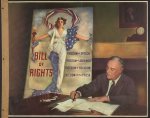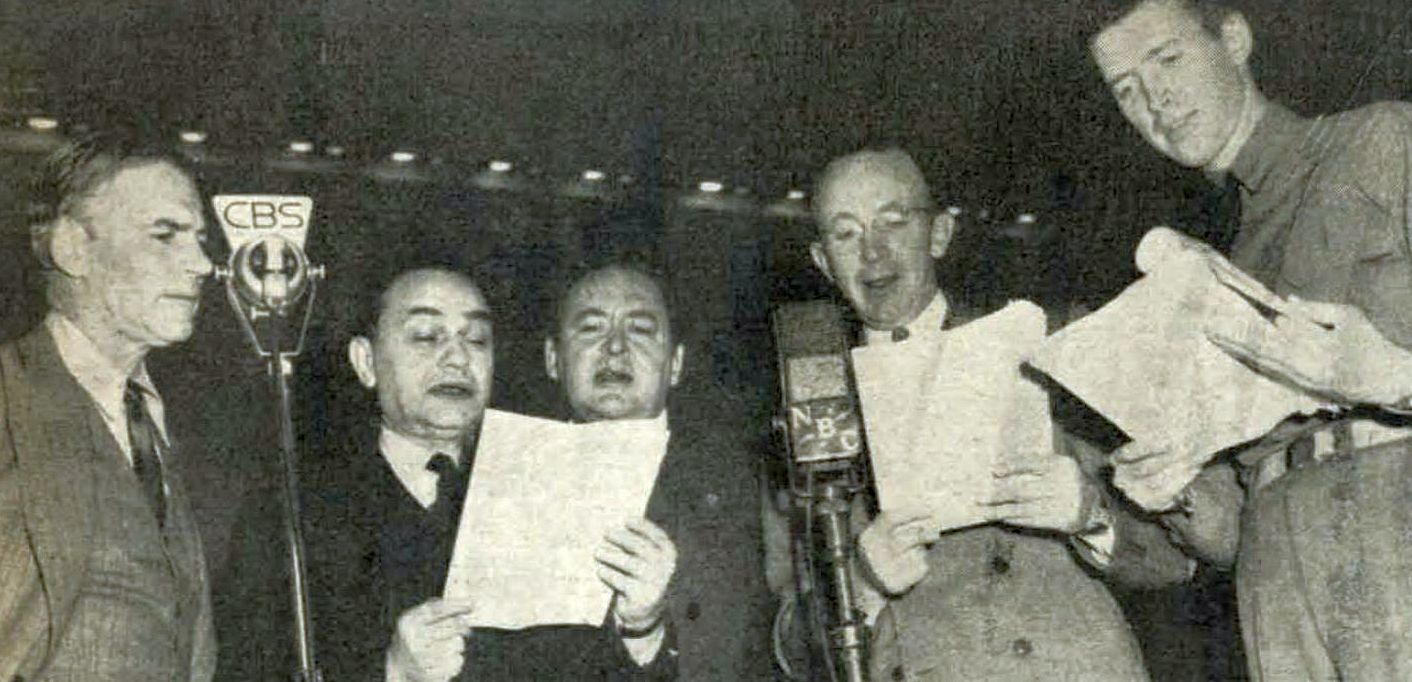Authors:
Historic Era: Era 3: Revolution and the New Nation (1754-1820s)
Historic Theme:
Subject:
Winter 2020 | Volume 64, Issue 1


Authors:
Historic Era: Era 3: Revolution and the New Nation (1754-1820s)
Historic Theme:
Subject:
Winter 2020 | Volume 64, Issue 1
On December 15, 1941, America was at war. Just one week earlier, President Franklin D. Roosevelt warned the nation that “our people, our territories, and our interests are in grave danger” after the “unprovoked and dastardly attack by Japan” on Pearl Harbor. Three days after that, Adolf Hitler addressed the Reichstag and said that Nazi Germany must defend itself against President Roosevelt’s aim of establishing “world domination and dictatorship.”

By an accident of fate, these dizzying events came right before the one hundred and fiftieth anniversary of the ratification of the first ten constitutional amendments — the American Bill of Rights. Among these provisions are the First Amendment, which protects the freedom of speech and free exercise of religion while barring an establishment of religion.
The Second Amendment provides: “A well regulated Militia, being necessary to the security of a free State, the right of the people to keep and bear Arms, shall not be infringed.” The Third Amendment restricts the government’s power to quarter soldiers in private homes, and the Fourth Amendment prohibits “unreasonable searches and seizures.” Due process of law is guaranteed in the Fifth Amendment, along with the right to just compensation if property is taken for public use. Criminal defendants may not be convicted without following the procedures in the Sixth Amendment, including the right to a jury trial and the ability to cross-examine witnesses. The Seventh Amendment secures the right to a civil jury trial, while the Eighth Amendment bars “cruel and unusual punishments.” Through the Fourteenth Amendment and Supreme Court decisions, most of these liberties were extended to the actions of state governments as well as the federal government.
Across the country, children recited the Bill of Rights in public schools and people from all walks of life came out to show their support for their fundamental liberties, including freedom of speech, the free exercise of religion, the right to bear arms, freedom from unreasonable searches and seizures by the police, the right to just compensation when property is taken for public use and the right to jury trial.
This national festival ended in a distinctly American way — with a prime-time drama on the Bill of Rights performed by Hollywood celebrities. Called “We Hold These Truths,” the hour-long show was broadcast over all four national radio networks and was heard by an estimated 63 million people, which was almost half of the entire population. Lionel Barrymore stated that the program was about “a document that men have fought for, that men are fighting for, that men will keep on fighting for as long as freedom is a strong word falling sweet upon the ear.”
Orson Welles, fresh off the release of Citizen Kane, narrated the next scene and gave way to Jimmy Stewart, who took the audience back to the debate over the Constitution’s ratification, in which one of the most important disputes was that the proposal did not have a bill of rights.
Eventually, Stewart said, “the people were promised changes, promised amendments, promised that their freedoms should be written down in black and white for all to see, for all to know, for all to live and prosper by.” The First Congress hammered out those rights with memories of “all the tyrants and the martyrs who had gone before.” The result was “a ten-part epic of amendments,” which was then read in its entirety by a star-studded cast.

The final part of “We Hold These Truths” was turned over to the most popular radio star in the land: President Franklin D. Roosevelt. “Free Americans,” he began, “No date in the long history of freedom means more to liberty loving men in all liberty-loving countries than the fifteenth day of December 1791. On that day, 150 years ago, a new Nation, through an elected Congress, adopted a declaration of human rights which has influenced the thinking of all mankind.”
“There is not a single Republic of this hemisphere,” Roosevelt said, “which has not adopted in its fundamental law the basic principles of freedom of man and freedom of mind enacted in the American Bill of Rights. There is not a country, large or small, on this continent and in this world, which has not felt the influence of that document, directly or indirectly.”
“Indeed, prior to the year 1933, the essential validity of the American Bill of Rights was accepted everywhere at least in principle. But in that year 1933,” the president continued, “there came to power in Germany a political clique which did not accept the declarations of the American bill of human rights as valid: a small clique of ambitious and unscrupulous politicians whose announced and admitted platform was precisely the destruction of the rights that instrument declared.”
“The entire program and goal of these political